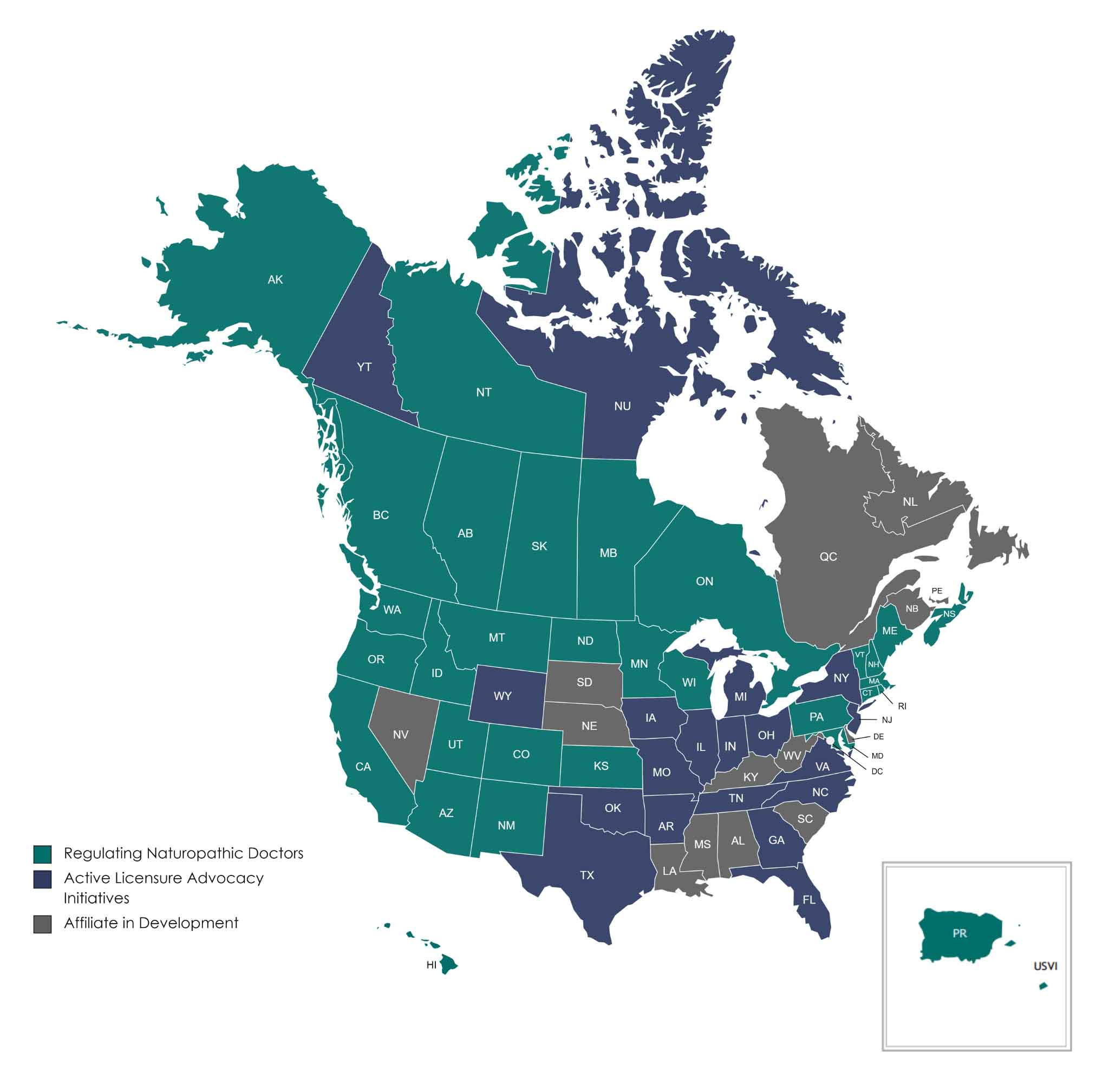Naturopathic doctors (NDs) are increasingly recognized as vital healthcare providers across North America, practicing in both licensed and pre-licensed regions. Licensure for naturopathic doctors is not just a professional milestone; it’s a critical framework that ensures public safety, elevates the standard of healthcare, and broadens access to qualified natural medicine practitioners. Understanding the benefits of licensure is crucial for both patients seeking reliable care and aspiring naturopathic physicians.
What Does Naturopathic Doctor Licensure Mean?
Licensure for a naturopathic doctor signifies a commitment to rigorous education, competency, and ethical practice. It’s more than just a permit to practice; it’s a guarantee to the public that an ND has met nationally recognized educational standards and maintains those standards through continuing education requirements. This regulatory framework is paramount in healthcare, providing assurance and accountability within the naturopathic medicine profession. Licensure establishes a clear pathway for patients to access regulated and established naturopathic care, fostering trust and reliability in the services provided.
Key Benefits of Licensed Naturopathic Doctors
The advantages of having licensed naturopathic doctors extend to various stakeholders, primarily focusing on public protection and the integration of naturopathic medicine into the broader healthcare landscape.
Public Protection and Trust: Licensure serves as a robust mechanism for public protection. It ensures that patients are treated by practitioners who have undergone extensive training and have demonstrated competency through standardized examinations. Furthermore, licensure provides a crucial avenue for patient recourse in cases of complaints or medical malpractice, offering oversight and accountability within the profession. This framework builds trust and confidence in naturopathic medicine as a safe and reliable healthcare option.
Enhanced Healthcare Integration: Licensure plays a pivotal role in integrating naturopathic medicine into the mainstream healthcare community. By codifying the role of the naturopathic doctor within a jurisdiction, licensure paves the way for broader inclusion in government-funded healthcare programs and insurance networks. This integration fosters interprofessional practice, allowing NDs to collaborate effectively with other healthcare providers, ultimately benefiting patient care through a more holistic and integrated approach.
Professional Recognition and Standards: For naturopathic doctors, licensure is a mark of professional recognition and validation. It solidifies their standing as regulated healthcare professionals, acknowledging their expertise and commitment to high standards of practice. Licensure not only protects the title “naturopathic doctor” but also elevates the entire profession by ensuring that only qualified individuals can represent themselves as licensed NDs.
Becoming a Licensed Naturopathic Doctor: Education and Examination
The path to becoming a licensed primary care naturopathic physician in jurisdictions requiring licensure is demanding and comprehensive, ensuring only well-qualified individuals are granted the privilege to practice. The core requirements include:
Accredited Naturopathic Medical Education: Aspiring NDs must graduate from a four-year, professional-level program at a naturopathic medical school accredited by an agency recognized by the U.S. Department of Education. This rigorous curriculum encompasses basic sciences, diagnostic and therapeutic subjects, and extensive clinical training, preparing graduates to be primary care physicians.
Passage of Standardized Licensing Examinations: Graduates are required to successfully pass the two-part Naturopathic Physicians Licensing Exam (NPLEX) in the United States or the Ontario Clinical Sciences Exam in Canada. These comprehensive examinations rigorously assess a candidate’s knowledge and competency in basic sciences, diagnostic and therapeutic modalities, and clinical sciences, ensuring they are prepared for the demands of naturopathic practice.
Jurisprudence and Regulatory Compliance: In addition to education and examinations, candidates must also pass jurisprudence examinations, demonstrating their understanding of the legal and ethical requirements of the jurisdiction where they seek licensure. Further requirements often include background checks and ongoing continuing education to maintain licensure, reinforcing the commitment to professional development and patient safety.
Where are Naturopathic Doctors Licensed? – A North American Overview
Naturopathic doctors are licensed and regulated in numerous jurisdictions across North America, reflecting the growing recognition of naturopathic medicine.
US Licensed States and Territories
Currently, 26 jurisdictions in the United States, including the District of Columbia, Puerto Rico, and the U.S. Virgin Islands, have established laws regulating naturopathic doctors. The scope of practice and specific regulations can vary by state, so it is advisable to check with your state association for detailed information.
States currently offering licensure or registration to naturopathic physicians:
- Alaska
- Arizona
- California
- Colorado
- Connecticut
- District of Columbia
- Hawaii
- Idaho
- Kansas
- Maine
- Maryland
- Massachusetts
- Minnesota
- Montana
- New Hampshire
- New Mexico
- North Dakota
- Oregon
- Pennsylvania
- Rhode Island
- Utah
- Vermont
- Washington
- Wisconsin
- US Territories: Puerto Rico and U.S. Virgin Islands
 Map of Licensed States and Provinces
Map of Licensed States and Provinces
For more comprehensive information regarding licensure in the United States, please consult the American Association of Naturopathic Physicians website.
Canadian Licensed Provinces and Territories
In Canada, six provinces and one territory currently regulate naturopathic doctors, ensuring standardized care and professional accountability. Similar to the US, specific regulations and scope of practice parameters are province-dependent, and consulting with the provincial association is recommended.
Canadian provinces and territories currently offering regulation and registration to naturopathic doctors:
- Alberta
- British Columbia
- Manitoba
- Ontario
- Saskatchewan
- North West Territories
For further information on licensure in Canada, please visit the Canadian Association of Naturopathic Doctors website.
Conclusion
Licensure for naturopathic doctors is paramount for upholding the integrity of the profession, ensuring patient safety, and facilitating the integration of naturopathic medicine within the broader healthcare system. As the demand for natural and holistic healthcare options continues to grow, the role of licensed naturopathic doctors will become increasingly significant in meeting the diverse healthcare needs of communities across North America. The ongoing expansion of licensure underscores the value and recognition of naturopathic medicine as a vital component of modern healthcare.

